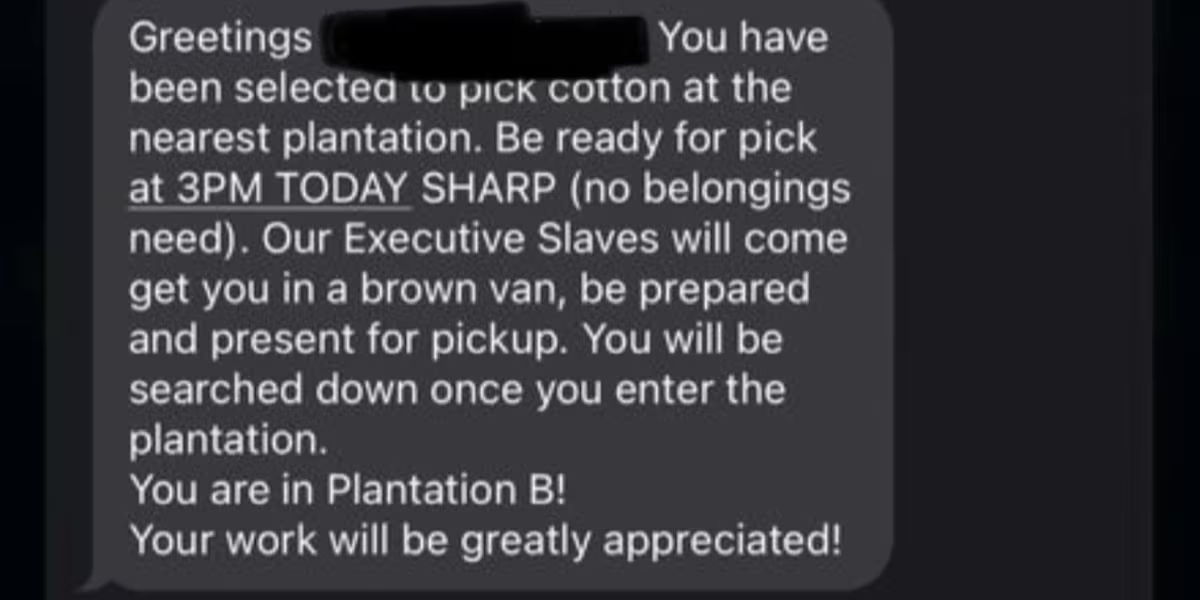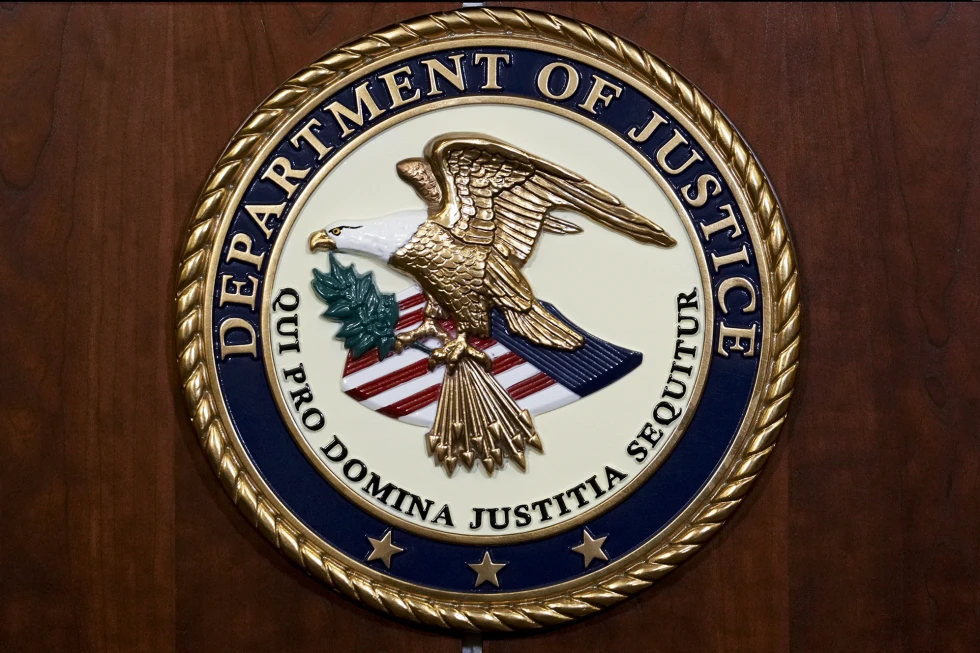Multiple federal and state agencies have launched investigations into a coordinated campaign of racist text messages sent to Black Americans across the country following this week’s presidential election, with messages particularly targeting children and students.

The FBI, Justice Department, and Federal Communications Commission are investigating the nationwide series of texts, which were reported in at least seven states including New York, Alabama, California, Ohio, Pennsylvania, Maryland, and Tennessee. The messages instructed recipients to “board a bus” for transport to a “plantation” to work as slaves, officials said.
“These messages are unacceptable,” FCC Chair Jessica Rosenworcel said in a statement. “We take this type of targeting very seriously.”
Investigators say the perpetrators used VPN technology to mask their location while exploiting bulk-messaging systems typically used for legitimate marketing. The texts targeted Black recipients with disturbing precision, sometimes addressing children by name.
“This is an intimidating, threatening use of technology” that likely violated multiple laws, Maryland Attorney General Anthony Brown said in an interview. Brown expressed particular concern about the targeting of minors through data typically collected from adults, such as campaign donors or magazine subscribers.

The wireless industry has blocked thousands of these messages and associated phone numbers, according to CTIA spokesperson Nick Ludlum. TextNow, a phone service provider, confirmed that “one or more” of its accounts were used to send the messages and were subsequently disabled for violating terms of service.
The targeting of young people has caused significant distress in affected communities. Nicole, a North Carolina mother who requested her last name be withheld, described her high school daughter’s first encounter with such overt racism.
“It’s like a slap in the face and it shows me that it is still an issue that has not changed at all,” she said. “She has a lot of friends of different races. She’s the one that doesn’t see color and she doesn’t see a difference. So, I feel like for her, it really showed her that everyone isn’t like her.”
Dr. Robert Greene II, assistant professor of history at Claflin University, said the timing and focus on young Black students appears deliberate. “It’s a way to say to, especially Black college students, that this is the world they are now living in, that this kind of outright racist intimidation is coming back to the norm in American society and American politics,” he said.
Technology experts say the perpetrators likely used readily available personal data and machine-learning algorithms to target recipients by race. “All of this means it might be easier than most people realize to make a really good guess about the race or ethnicity of the person attached to that phone number,” said Cori Faklaris, assistant professor at the University of North Carolina at Charlotte.
Unlike email or social media, text messages in the U.S. are regulated like utilities, with little content filtering available to block suspicious messages before delivery. However, Faklaris noted that improved investigative tools developed during the pandemic’s surge in texting scams should help authorities trace the source of these attacks.
The incident has prompted calls for enhanced protections against technologically enabled racial harassment, with multiple state attorneys general pledging to use all available resources to identify and prosecute those responsible.



